Each October, the first full week of the month is designated as Mental Illness Awareness Week. According to NAMI.org, 1 in 5 adults experience mental illness each year. With such a seemingly widespread issue, mental illness still remains stigmatized and, therefore, often sensationalized in media and entertainment. In recent years though, a movement is slowly making headway in film and television for authentic stories that showcase the truth of living with mental illness. Check out this list for 8 favorites.
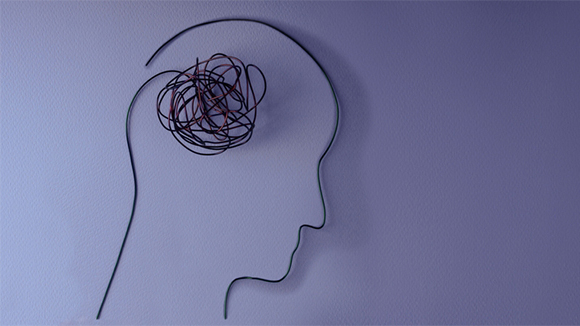
How many of your favorite movies or shows are your favorite because you can see yourself in at least one character? The good parts of us, the bad parts, the parts we don’t understand, and the parts we may be ashamed of are all made a little more bearable when we get a bird’s eye view of them in someone else. This is especially true for those of us who struggle with our mental health or love someone who is struggling.
For decades, Hollywood has sensationalized, demonized, and romanticized mental illness with stereotypical portrayals for shock value or just out of pure ignorance. In recent years, however, there has been an increase in movies and shows that have aimed to get it right and make their audiences feel seen and a little less alone. For Mental Illness Awareness Week, I’ve compiled a list of 8 movies and shows that have been a comfort, that I’ve felt seen by, and that I think have done a great job at portraying the realities and different perspectives of mental illness.
Learn About Mental Health Services @ Coastline
Content Warning:
In this blog, there are mentions of mental health issues including depression, anxiety, suicide, panic attacks, addiction, and self-harm as they pertain to the movies and shows listed below. Before watching any of the media listed below, please look up their trigger warnings to ensure you adequately prepare and protect yourself against anything that may be distressing or harmful to you at this time.
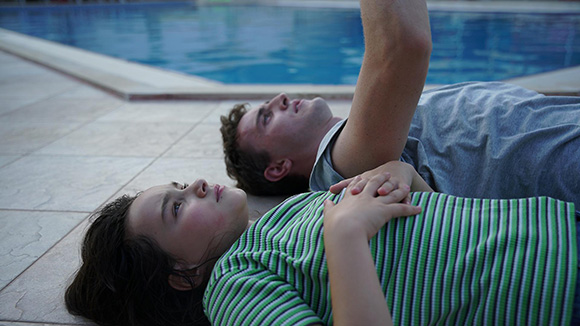
Source: IMDB
1. Aftersun (2022) – Emmy nominee Paul Mescal stars in this beautiful, raw, and heart-wrenching film about a daughter who looks back on her vacation with her father, who is no longer here, through new eyes as she watches her old videotape from the trip twenty years later. Alternating between past and present, we watch as the daughter, Sophie, comes to terms with a different reality and memory of her father than what she remembered or experienced as an eleven-year-old girl.
The film does a beautiful job of highlighting the blissful ignorance of childhood and the pain that comes with getting to an age where we see our parents as people who experience the same struggles and pain as we do.
Mental Illness Depicted: Depression.
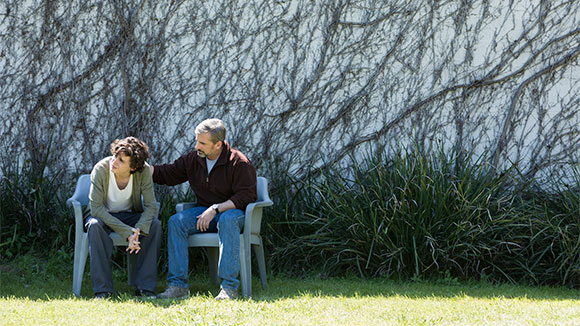
Source: IMDB
2. Beautiful Boy (2018) – Starring beloved actors Steve Carrell and Timothée Chalamet, this biographical film is based on the memoir by David Sheff, Beautiful Boy: A Father’s Journey Through His Son’s Addiction. The film follows the journey and close bond between father and son, David and Nic Sheff as Nic falls into drug addiction, and David struggles to help him, their bond struggling under the weight of it all.
In a world where addiction is still stigmatized and not recognized as a disease, let alone a mental illness, Beautiful Boy does a wonderful job of showing the cycle of addiction, and the impact it has on the person and family involved.
Mental Illness Depicted: Depression, Addiction.
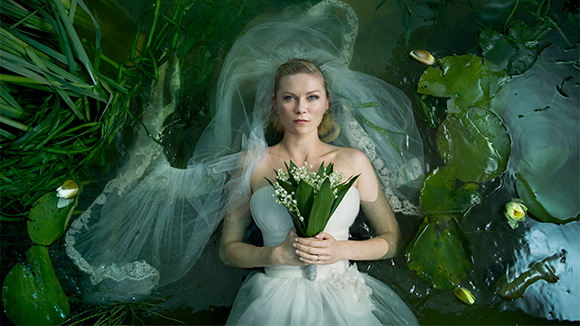
Source: IMDB
3. Melancholia (2011) – This apocalyptic film starring Kirsten Dunst follows the journey of two sisters, Justine, who is going through a depression, and Claire, as they deal with the knowledge that a planet is hurtling towards Earth.
The heaviness and pure exhaustion Kirsten Dunst exudes in her performance as Justine is completely captivating and accurately depicts the realities of depression, one of them being the desire to feel and be better, but physically feeling unable to, as well as the inability of others to understand why you feel this way. It is regarded by many, including me, as one of the greatest portrayals of depression in cinema.
Mental Illness Depicted: Depression.
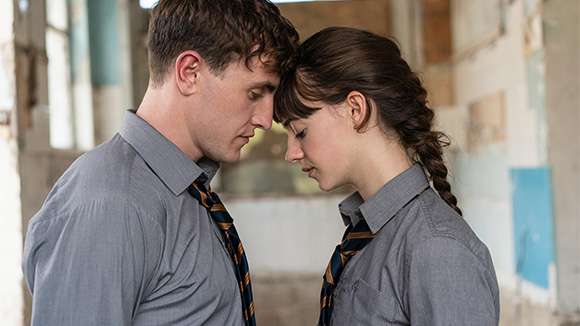
Source: IMDB
4. Normal People (2020) – This coming-of-age drama limited series by Hulu is based on Sally Rooney’s novel of the same name. Paul Mescal and Daisy Edgar Jones star as Marianne and Connell, two high schoolers who form an on-again off-again romantic relationship that continues into their college years. The story chronicles their lives as they struggle with low self-worth, depression, and anxiety, and navigate falling in love for the first time, growing older, and becoming different people.
I’m always wary of book adaptations, but Paul and Daisy give show-stopping, award-winning performances. The show’s writers capture the essence of Sally Rooney’s raw, realistic, deeply flawed, and complicated characters, and how their choices impact their relationships, friendships, family dynamics, and worldview.
Mental Illness Depicted: Depression, Anxiety.
Explore Mental Health Services @ Coastline

Source: IMDB
5. Ginny and Georgia (2021–present) - If you’re a part of Gen-Z, you might not have heard many favorable things about this Netflix show, but before you cringe, just hear me out. Ginny and Georgia is about a mother, Georgia, who moves her 16-year-old daughter, Ginny, and 8-year-old son to a new town to settle down after spending years on the run.
Though Ginny’s internal struggles are shown throughout the first season of the show, the portrayal of her mental health struggles shines in the most recent season, season 2, with a closer examination of her battle with depression, anxiety, and self-harm as she uncovers secrets that reveal her life has been a lie, as well as dealing with the effects of being a biracial teenager in a predominately white school and raised by a white mother.
While the show had its questionable moments in season 1, season 2 did an outstanding job of showing therapy isn’t a ‘quick fix’, as it’s often portrayed as in Hollywood, and the internal struggle of loving your parents but realizing that the choices they made throughout your childhood have a lasting negative impact as you’ve grown older.
Mental Illness Depicted: Depression, Anxiety.
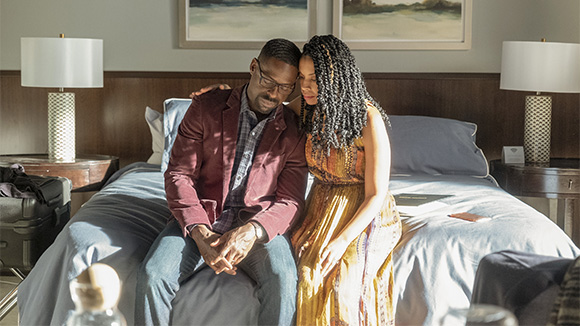
Source: IMDB
6. This Is Us (2016-2022) – This show has made a rightful name for itself as one of America’s most beloved shows, and more importantly, one of mine. This Is Us is the multi-generational story of the lives of the Pearson family, alternating between past and present as they navigate adulthood and try to understand themselves through their past.
Randall, one of the show’s main characters (and one of my personal favorites), has struggled with anxiety since he was a child, causing him to suffer from debilitating nervous breakdowns and panic attacks. As the show progresses, and Randall’s anxiety becomes worse, he begins to address the unresolved issues that have contributed to his anxiety over the years, such as being a black man in America who grew up in a white family.
The show’s masterful alternation between past and present tactfully addresses how the impact of unresolved or unaddressed issues from childhood can manifest in adulthood.
Mental Illness Depicted: Anxiety.
Mental Health Awareness @ Coastline
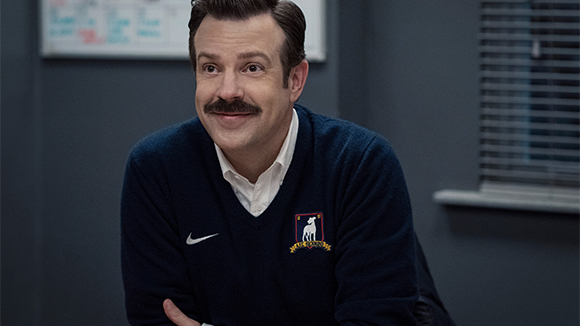
Source: IMDB
7. Ted Lasso (2020-2023) – Jason Sudeikis’s feel-good dramedy is about an American football coach from Kansas who moves to the UK to coach football. While Ted is a positive, happy-go-lucky main character who is constantly uplifting those around him, he struggles with loneliness, depression, and anxiety and has panic attacks after going through a divorce, splitting custody of his son with his ex-wife, and dealing with the lasting effects of past childhood trauma—all while in an entirely new country.
Throughout the show, Ted makes it a point to encourage his team and have positive and open conversations with them. As he recognizes his struggles, he implements this in his personal journey as he learns how to open up about his mental health, ask for help when he needs it, and show up for himself the way he does for others.
Mental Illness Depicted: Depression, Anxiety.
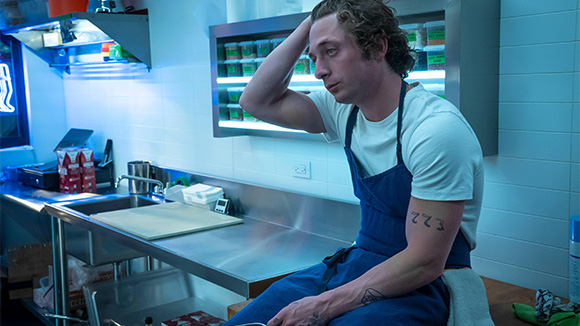
Source: IMDB
8. The Bear (2022-Present) – When this show first came out, I watched it in one night, and proceeded to watch it two more times over that weekend—so it’s safe to say it’s one of my new favorite releases. The Bear is a comedy-drama that follows the story of fine dining chef Carmy Berzatto as he takes over his brother’s chaotic, hole-in-the-wall restaurant that he left to him in the wake of his death.
Aside from the funny and most times, anxiety-fused, fast-paced kitchen scenes, the way this show tackles grief is my favorite thing about the show. Throughout the two seasons of the show, Carmy deals with intense grief, guilt, and anger over his brother’s death, as well as sleep issues, anxiety, and panic attacks related to his grief, complex familial issues, stress over running his brother’s restaurant, past workplace abuse at his previous restaurant, and trying to balance having a life outside of it all.
The show provides insight into his brother’s mental issues through flashbacks, and while the show doesn’t explicitly give Carmy a diagnosis aside from his evident grief, his mental health struggles aren’t thinly veiled by any means. The show does an exceptional job of showing the mental health struggles brought on by grief, stress, and toxic family dynamics, along with the fear of perpetuating the cycle of generational trauma, and how it can unconsciously affect every relationship you have, not just the ones with your family.
Mental Illness Depicted: Depression, Suicide, Addiction, Anxiety, PTSD.
Conclusion
To be clear, mental illness isn’t and never should be portrayed as monolithic, or one size fits all. The shows and movies listed just barely begin to scratch the surface of the wide range of mental illnesses that people struggle with daily—and many mental illnesses have yet to be portrayed accurately, or even at all.
While progress has been made over the years, there is still extensive work to be done in portraying stories about mental health with diverse leads and stories, and that starts with listening to diverse voices and allowing them into writers' rooms to tell their stories with the care and honesty they deserve.
While we continue to fight for those stories to be seen and heard, I hope you’re able to see an aspect of yourself or someone you love in a few of these recommendations.